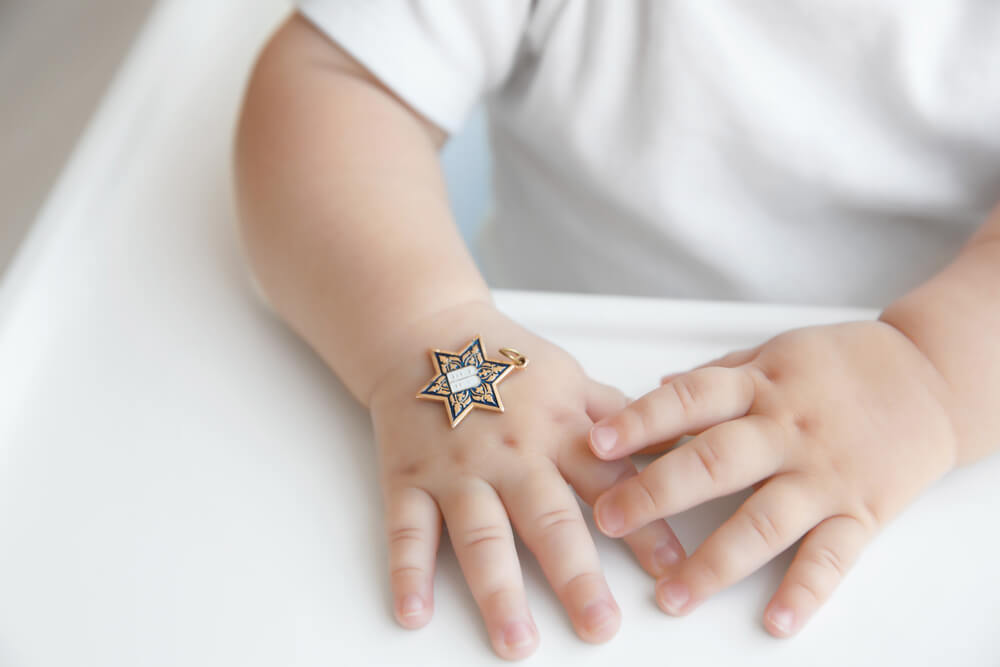The brit milah is one of the most important days in a newborn Jewish boy’s life and is a great religious celebration. The important aspect of faith and religion being a part of the boy from birth has been a ritual in the Jewish religion that can be traced back to the days of Abraham. For those that have never witnessed a brit milah or want to learn more about the tradition behind ceremony and blessings, we are here to help. Two terms that are sometimes used interchangeably are brit milah and bris. Brit milah is the “covenant of circumcision,” and bris is the actual ceremony of circumcision.
The Importance of Brit Milah
For 3,500 years, since Abraham, the biblical patriarch, Jewish fathers have upheld the tradition of the ceremonial, physical covenant that is shared between God and man. And to this day, the brit milah tradition is still as important in a newborn Jewish boy’s life as it has been for millenniums. It is viewed as much more than a simple medical procedure of circumcision, but instead as a newborn’s entry into the Jewish faith and tradition. Perhaps more than any other rituals in Judaism, the brit milah is the most sacred sign of Jewish identity.
In the Bible, “And God spoke to Abraham saying: …This is my covenant which you shall keep between Me and you and they seed after you – every male child among you shall be circumcised.” This covenant is sacred because it symbolizes the living promise that God has made that the Jewish people will continue to exist, and the ceremony itself is focused on the body part that is responsible for procreating future generations in the religion.

The Bris Ceremony
As mentioned above, the ceremony itself is much more than just a routine medical procedure; it involves the family and several blessings and components to signify the importance of the ritual. Here’s is the overview of the ceremony itself:
- The ceremony starts with a family member or friend of the family by lighting the candles. This tradition comes from a time when circumcision was prohibited and a single candle in a window signaled that the religious ceremony was taking place.
- Next, the mohel or the family Rabbi will say a few open remarks and then call for the baby.
- The honor of bringing the baby in is typically done by the Godmother of the boy; typically, this is either a grandmother or another female relative who is looking to have children. This honor is considered an omen for the relative bringing the baby as she is gracious with bringing another woman’s son to his bris so that God may bless her with the honor and pleasure of bringing her own son one day.
- Next, the baby is handed off to the Godfather, who brings the child into the room of the ceremony. Led by the Rabbi or Mohel, the baby is greeted with the words of, “Baruch Haba,” and this blessing means “Blessed is he who enters.”
- The Godfather then places the child in a chair that has been decorated as the throne for the spirit of Elijah the Prophet, the “Angel of the Covenant.” Elijah is present at every bris in order to testify before God the commitment of the Jewish people to him and to be the guardian angel of children. Just prior to the circumcision, the mohel places the child on Elijah’s chair and recites a special blessing asking Elijah to stand over him as he performs the bris. Placing the boy in this chair represents the bris prayers of the baby’s safety, sign of everyone’s faithfulness to God’s law and expression of hope that the Messiah will come soon. When the child is placed on the chair, the congregation announces, “This chair is for Eliyohu hanovi,” and the mohel recites a brit milah blessing.
- From the chair of Elijah, the baby is then taken by the father and handed off to the Sandek, who is the spiritual mentor of the child that is typically one of the grandfathers. The Sandek will hold the baby on the table that has been signified as the altar for the ceremony. Blue or white cloth, flowers, Kiddush cup, and a picture of the person who the baby is to be named after, are customarily found on this alter.
- Once the baby is placed on the table and held by the Sandek, the mohel then recites the blessing of circumcision, which states:
“Blessed are You, Lord our God, King of the universe, who has sanctified us with His commandments and commanded us concerning circumcision.” - Following the actual circumcision, the father recites a brit milah blessing about entering into the covenant of Abraham. As the father concludes his blessing, all who are present recite the following:
“Just as he has entered into the Covenant, so may he enter into Torah, into marriage, and into good deeds.”
From here, the naming ceremony begins with several brit milah blessings included. Following the naming ceremony, the festive celebratory meal is to be served and enjoyed.
The brit milah is an extremely important day in the lives of a family who just welcomed in a new baby boy. If you are or someone you know is looking for a mohel that understands the importance of this day and has years of experience, Dr. Andrew Krinsky is who you should call. Dr. Krinsky is religiously ordained and board-certified to perform a traditional bris. For more information, visit our page to learn more about the brit milah.







